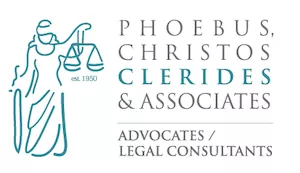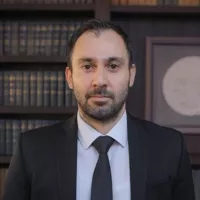- within Transport, Employment and HR and Finance and Banking topic(s)
- with readers working within the Property industries
In family‑law disputes, few issues are as sensitive—and as pivotal—as who decides for the child once parents separate. Cyprus law approaches the matter through the concept of parental responsibility, a bundle of rights and duties owed jointly by both parents. Below we analyze the statutory basis, key case‑law principles and the practical implications for day‑to‑day decision‑making and contact with minor children of a divorced and or separated couple.
Legal Foundation
Joint Parental Responsibility
- Article 5(1)(α), Law 216/1990: Parental responsibility is both a duty and a right, exercised jointly by the parents.
- Article 5(1)(β) breaks the concept into four elements:
-
- Name of the child.
- Custody of the person (day‑to‑day care).
- Administration of property.
- Representation of the child in any matter affecting person or property.
Resolving Deadlock
When parents cannot agree, Article 7, Law 216/1990 empowers either of them to apply to the Family Court. The Court's guiding star is the "best interests of the child", reiterated in Article 6(2)(α) and consistently applied in jurisprudence (Evg. Stylianou v Vas. Stylianou 1993; Director of Social Welfare v Douma 2001).
Best‑Interest Test in Case Law
Cypriot courts emphasize that deciding parental responsibility is "a delicate and complex task, not a forum for blame" (Kkoufou v Kkoufou 1997). The entire factual canvas matters—emotional bonds, stability, each parent's capacity and, where appropriate, the child's own wishes.
The process is inquisitorial, not adversarial: the judge actively investigates what arrangement best promotes the child's welfare (Ioannides v Ioannides 2002).
The Right of Contact
Statutory Right
- Article 17(1), Law 216/1990 affirms that the parent with whom the child does not reside "retains the right of personal communication".
- If parents disagree, the Court decides (Art 17(2)), again applying the best‑interest yardstick (Art 17(3) → Art 6).
- Article 17A extends the legislator's
protection beyond parents, recognizing the child's wider family
bonds:
- Statutory entitlement – Every ascendant (grandparents, great‑grandparents, etc.) has an inherent right to maintain personal contact with the child (s. 17A(1)).
- No unjustified interference – No person – including a parent – may obstruct that contact unless a compelling reason, exclusively tied to the child's best interests, is demonstrated (s. 17A(2)).
- Judicial regulation – Where disagreement arises, the Family Court may fashion appropriate orders under s. 17A(3): it can fix a detailed schedule, impose conditions (e.g., supervised visits, neutral venues) or, in exceptional cases, suspend the right altogether—always guided by the welfare principle.
Scholarly Perspective
Greek legal scholarship applied in Cyprus family law underscores the need for mutual respect and cooperation, warning against:
- Direct obstruction (refusing hand‑overs, "hiding" the child).
- Indirect obstruction (alienating the child,
cultivating hostility).
Conversely, the contact parent must avoid undermining the custodial parent or usurping day‑to‑day care.
Practical Implications
|
Scenario |
What the Law Says |
Practical Tip |
|
Routine decisions (school choice, medical treatment) |
Must be taken jointly; unilateral action may be struck down. |
Keep written records of proposals and responses. |
|
Deadlock on major issue |
Either parent may apply under Art 7. |
File early—courts move faster when future events (e.g., school enrolment) are date‑critical. |
|
Travel abroad with the child |
Requires both parents' consent; if withheld, court order needed. |
Seek consent ≥1 month before departure to allow court time if necessary. |
|
Child nearing 17 |
Court increasingly weighs the teenager's own wishes. |
Prepare to evidence the child's view (e.g., welfare‑officer report). |
Key Takeaway
Cyprus treats parental responsibility as a joint mandate anchored in the child's welfare. Courts intervene only when cooperation fails, but their powers are extensive—ranging from specific orders on schooling or healthcare to detailed contact schedules or even reallocating elements of parental responsibility altogether.
Early legal advice and a constructive stance save time, cost and emotional strain—ultimately serving the very interest the legislation protects: the child's well‑being.
The content of this article is intended to provide a general guide to the subject matter. Specialist advice should be sought about your specific circumstances.


